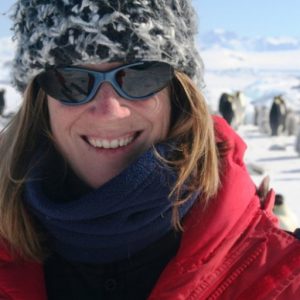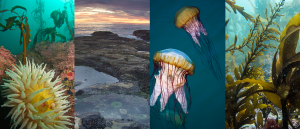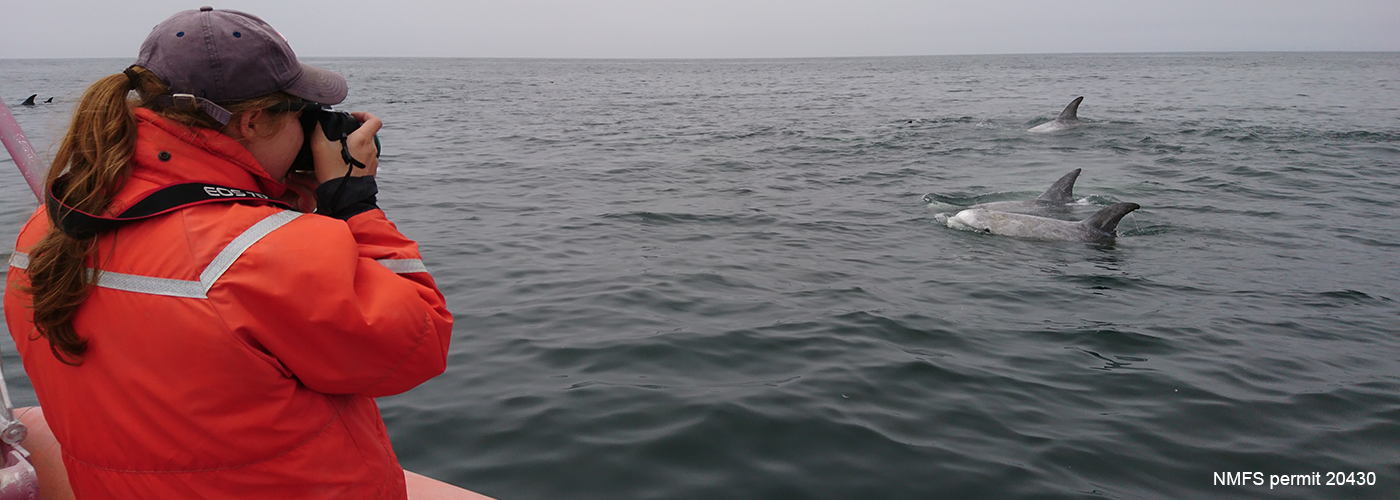Birgitte (Gitte) McDonald
Faculty Member
Department: Vertebrate Ecology
Website: https://mlml.sjsu.edu/birdmam/
Contact:
email: birgitte.mcdonald@sjsu.edu
phone: (831) 771-4417
office: 407 MLML Main Lab
Biography:
Gitte received an M.A. in Biology from Sonoma State University and Ph.D. in Ecology and Evolutionary Biology from the University of California Santa Cruz. Her graduate research focused on understanding the reproductive energetics of pinnipeds ranging from a study examining the mechanism behind increased lactation efficiency with age in elephant seals, to investigating how maternal traits and foraging behavior influence energy allocation in Antarctic fur seals. In addition to her thesis research, she pursued other research interests in foraging ecology and diving physiology in a variety of species including California sea lions, Galapagos sea lions, elephant seals, and crabeater seals.
In June of 2013, she completed a postdoctoral research project at Scripps Institution of Oceanography evaluating the role of blood oxygen depletion, heart rate, and oxygen management strategies in the determination of routine foraging dive durations of the California sea lion. She then started a NSF International Research Fellowship at Aarhus University in Denmark combining two of her research interests in a project studying the field energetics and diving physiology of harbor porpoises. She joined the faculty at Moss Landing Marine Labs as an assistant professor in January 2015.
Research Interests:
As a physiological and behavioral ecologist, Dr. Gitte McDonald investigates adaptations that allow animals to survive in extreme environments. Marine mammals and birds provide an ideal study system to investigate these adaptations due to their large size variation, their geographic distribution and the environmental challenges they must cope with including, hypoxia, extreme temperatures, and fasting. Understanding the mechanisms that allow an organism to interact and survive in its environment is crucial for predicting, and potentially mitigating, their response to climate change. Currently, her research focuses on three broad areas: 1) determining the diving capacity of breath-hold divers and understanding the mechanisms underlying these capacities, 2) investigating the physiological responses to, and energetic consequences of, anthropogenic stressors, and 3) determining the energetic requirements of foraging and reproduction to quantify energy allocation, physiological trade-offs, and the organism’s role in the ecosystem. She strives to integrate techniques from physiological, evolutionary and behavioral biology to elucidate the mechanisms that define the ecological niche of an organism.
Curriculum Vitae:
Selected Publications
- Goetz, K.T., B.I. McDonald, and G.L. Kooyman. Habitat preference and dive behavior of non-breeding emperor penguins in the eastern Ross Sea, Antarctica. Marine Ecology Progress Series 509: 155-171. 2018.
- McDonald, B.I., M.J. Johnson, and P.T. Madsen. Dive heart rate in harbour porpoises is influenced by exercise and expectations. Journal of Experimental Biology 221. doi:10.1242/jeb.168740. 2018.
- Hooker, S., S.E. Simmons, A. Stimpert, and B.I. McDonald. Equity and career-life balance in marine mammal science. Marine Mammal Science 33: 955-965. 2017.
- Ponganis, P.J., B.I. McDonald, M.S. Tift, and C.L. Williams. Heart rate regulation in diving sea lions: the vagus nerve rules. Journal of Experimental Biology 220: 1372-1382. 2017.
- Elmegaard, S.L., M. Johnson, P.T. Madsen, and B.I. McDonald. Cognitive control of heart rate in diving harbor porpoises. Current Biology 26: R1175-R1176. 2016.
- Villegas-Amtmann, S., B.I. McDonald, D. Paez-Rosas, D. Aurioles-Gamboa, and D.P. Costa. Adapted to change: Low energy requirements in a low and unpredictable productivity environment, the case of the Galapagos sea lion. Deep-Sea Research Part II 140: 94-104. 2016.
- McDonald, B.I. and P.J. Ponganis. Deep diving sea lions exhibit extreme bradycardia in long duration dives. Journal of Experimental Biology 217: 1525-1534. 2014.
- McDonald, B.I. and P.J. Ponganis. Insights from venous oxygen profiles: oxygen utilization and management in diving California sea lions. Journal of Experimental Biology 216: 3332-3341. 2013.
- McDonald, B.I. and P.J. Ponganis. Lung collapse in a diving sea lion: hold the nitrogen and save the oxygen. Biology Letters 8: 1047-1049. 2012.
- McDonald, B.I., M.E. Goebel, D.E. Crocker, and D.P. Costa. Biological and environmental drivers of energy allocation in a dependent mammal, the Antarctic fur seal pup. Physiological and Biochemical Zoology 85: 134-147. 2012.




